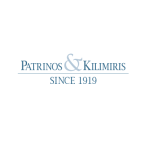The newly-born Greek law on trademarks implementing Directive (EU) 2015/2436 has an attention-worthy provision, relating to the renewal of trademarks within their grace period. More specifically, the new Greek law on trademarks provides that the payment of the renewal fee can be made within the last six months of the protection’s term. It can also be made within an additional term of six months following the expiry of the formal protection’s term, subject to the payment of the renewal fee increased by 50% and without negating third parties’ rights acquired in the meantime.
What does a “right” mean in this regard?
If one is to assume that said legal provision refers to a subsequent trademark registration obtained by a third party within the earlier trademark’s grace period and before the earlier trademark’s late renewal, it is then clear that we have to deal with an intervening right, in addition to the ones already provided for in the Directive (EU) 2015/2436.
Furthermore, if one is to assume that the legal provision also refers to what is known under Greek law as “a right conferring prospective entitlement", it has to then be accepted that if a third party files a trademark application within the earlier trademark’s grace period, before said trademark is renewed (late), said subsequent trademark application may not successfully be opposed at a later stage.
Such an interpretation seems to penalise late renewal of a trademark by allowing the registration of a confusingly similar or identical trademark filed before the original trademark was renewed in the grace period, without the possibility of opposing such new application.
The above-mentioned parameters raise serious issues regarding the compatibility of the specific provision of the Greek law, not only with the Directive (EU) 2015/2436 but also with the Paris Convention that has been an integral part of the Greek regime on trademarks since 1975.
It is therefore interesting to see how the Greek Trademark Office and the Greek courts will interpret the specific legal provision.
Georgios Panagopoulos












